#gq middle east
Text

GQ Magazinze Middle East, ph. Otman Q. [France, 2022]
10K notes
·
View notes
Photo

gq middle east
photographed by emil pabon (x)
#what the ever loving fuck tamino#thank you for the link sophaeros!#tamino#emil pabon#gq middle east#photoshoots: gq middle east#photoshoots: 2022#2022
2K notes
·
View notes
Text
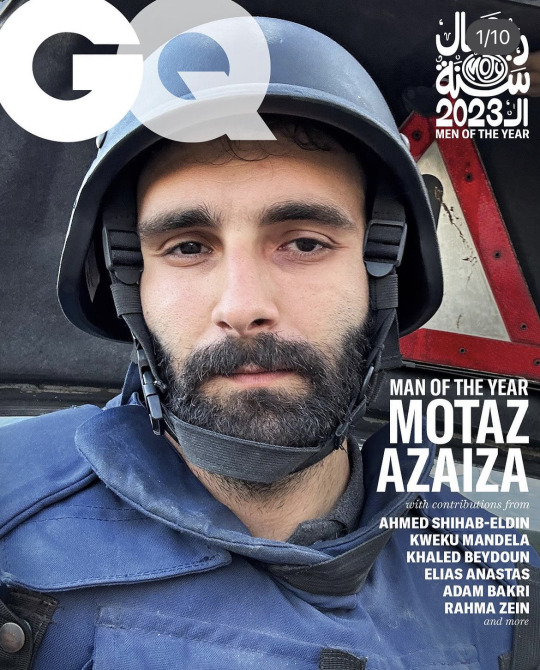
Man Of The Year Motaz Azaiza - GQ Middle East
#well deserved king 👑#he deserves the world and more#may Allah bless him#motaz azaiza#gq middle east#gq magazine#gq men of the year#man of the year#palestine#free palestine#gaza#free gaza
67 notes
·
View notes
Text
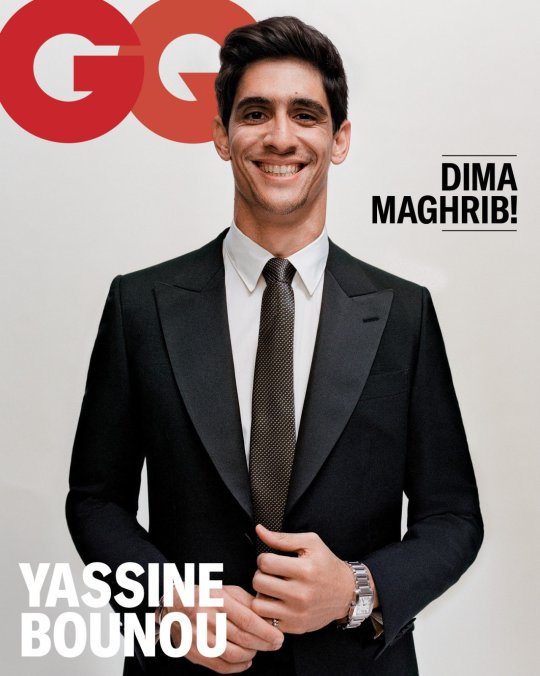
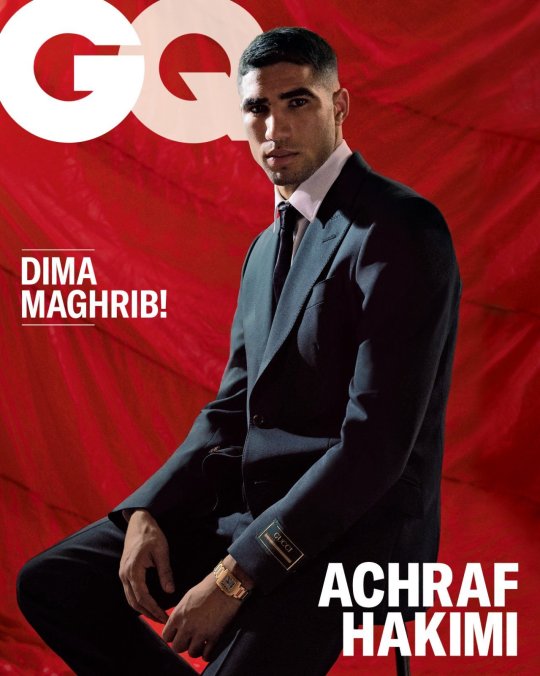
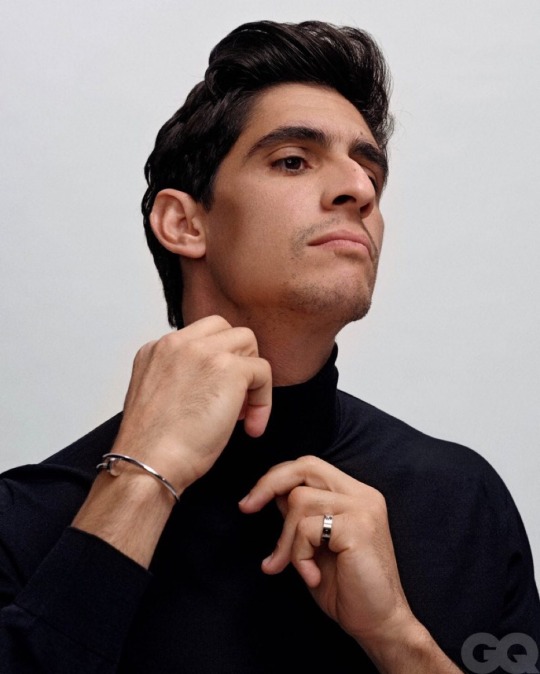

icons
#morocco#yassine bounou#BABIES#achraf hakimi#morocco national team#♥️💕♥️💕♥️💕♥️💕💕💕💕#gq middle east#gq#football
174 notes
·
View notes
Text
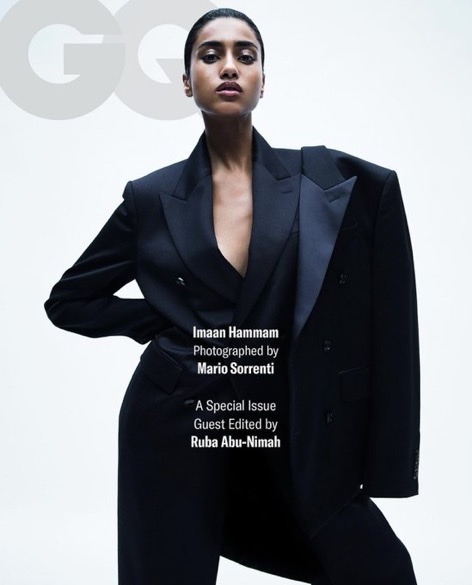
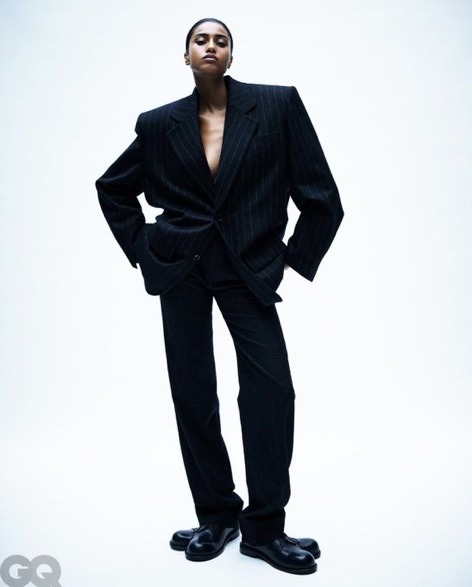

5 notes
·
View notes
Text


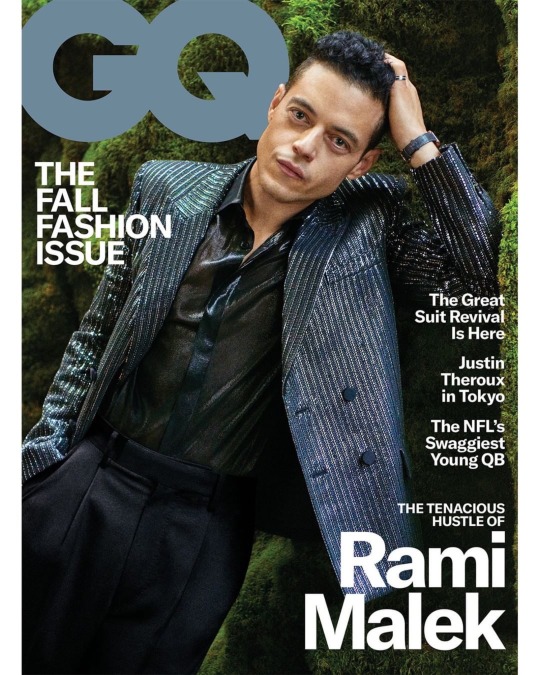
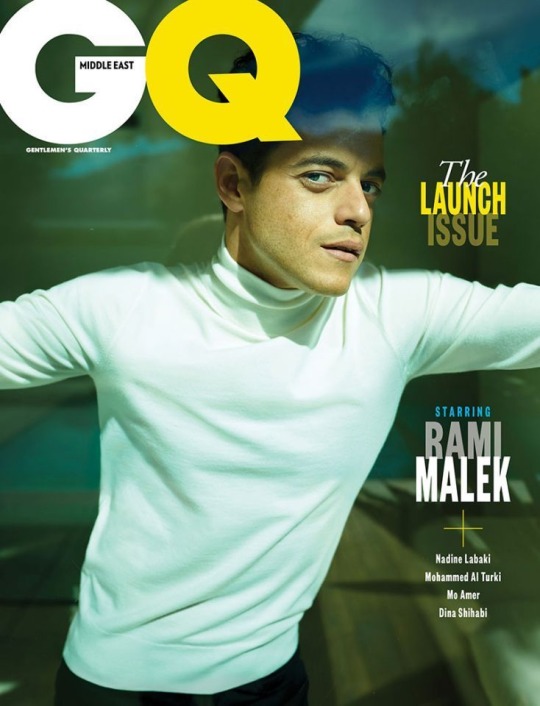
Thinking about how Rami has covered 3 different versions of GQ (British, American, & Middle East (twice)). Also I love the articles about him. He’s so thoughtful, intelligent & lovely 😍🥰❤️
#rami malek#ramimalek#rami#gq middle east#british gq#GQ#rami malek is a work of art#rami malek deserves the world#rami malek fan for life#i love him so much
19 notes
·
View notes
Photo



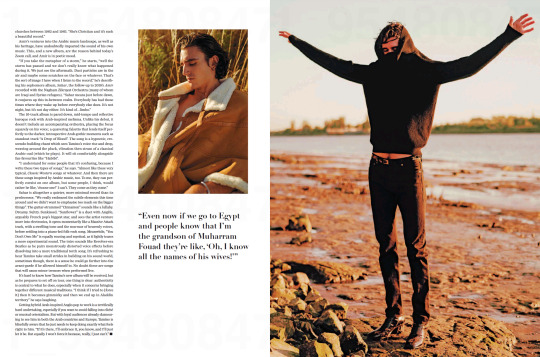
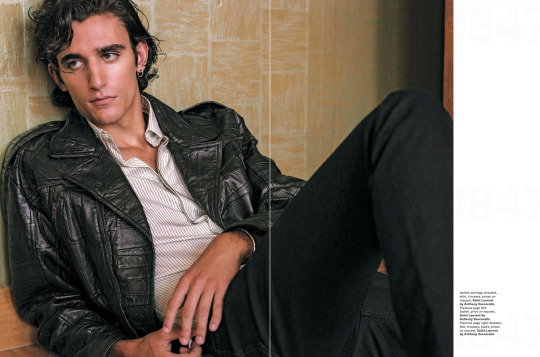
— Tamino for GQ Middle East, September 2022 (x)
Tamino’s Truth
On the brink of a new album and tour, Belgian-Arab singer Tamino Amir is ready to take his career to the next level. But there won’t be room for compromise.
Words Jad Salfiti Photography Emil Pabon Styling Adrien Gras Groomer Sanne Schoofs Producer Mercator
STEPPING OFF THE plane and on to the aircraft’s staircase, the warm air hits Tamino Amir squarely in the face. It’s a familiar sign that he’s just arrived back in Om El Donya (the Arabic nickname for Egypt, meaning mother of the world). Blearyeyed from a long-haul flight from Belgium, he hands his burgundy Belgian passport to the immigration officer. It’s met with silence, and then something strange happens.
Immigration officer: “Ana araa laqabak hu fuad. Hal antum eayilat Muharram Fouad?”
Tamino: “Sorry, I don’t speak Arabic.”
Immigration officer: “Are you related to Muharram Fouad?”
Tamino: “Yeah, he was my grandfather.”
Cue frantic excitement as several security guards rush to the desk and surround the singer, desperate for a photo opportunity with the grandson of the late Muharram Fouad, a titan of Egyptian musical cinema’s golden age of the 1960s. Tamino’s creased with laughter as he tells the story from his apartment in Antwerp, but you get the impression that it’s not one-off.
“Even now if we go to Egypt and people know that I’m the grandson of Muharram Fouad they’re like, ‘Oh, I know all the names of his wives! Then they start naming them all [including] my Grandma.’”
How many wives did he have?
“Six in total, not at the same time of course, but they only had one kid which seems like a miracle. Yeah, one kid: my father.”
Though the musician’s memories of his grandfather are hazy, he had a direct influence on his now burgeoning musical career. As a teenager, Tamino even discovered his antique resonator guitar in the attic of the family home in Cairo. “The first time I sang through a microphone was at my grandfather’s studio. He had one in a house in 6th of October city [so-named after the 1972 Arab-Israeli war].”
With so much attention focussed on his grandfather’s legacy, you have to wonder whether the shadow ever looms too large on Tamino’s own career. It’s something he’s given thought – and fraught – to.
“I was really scared that maybe the people who would come to my show in Egypt [Tamino’s first there in 2019], would come mainly because I was the grandson of Muharram Fouad. But it wasn’t the case. Usually they would just say, ‘Oh and by the way, my grandma is such a huge fan of your grandfather’. But they came because they liked my music. It was really cool.”
Today, Tamino is in good form; chatty and smiling ear-to-ear. He’s just returned from holiday in Italy (a trip to Monopoli in Puglia) as well as spending time hanging out and working in New York’s Williamsburg and Lower East Side Manhattan. But with a new record and a US and European tour around the corner, things are about to get very busy for the 25-year-old.
Born to a Belgian mother and Lebanese-Egyptian father, Tamino lived in Cairo until he was three when his parents split up. It led to a move to Belgium with his brother and mum and has been home ever since. Not that he gave up his roots for Europe. “We’ve visited Egypt many times,” he explains. “I also visited Lebanon once on my own to spend time with my cousin – she also makes music and is super cool.” The cousin he’s referring to is the fledgling singer Tamara Qaddoumi. “She showed me around Beirut and in the mountains, too. She actually brought me to a Syrian oud teacher there and we had a sort of Arabic singing lesson. He sold me an oud to start practicing on.”
He might not speak the language, but Amir is well-versed in Arabic music. “There’s this one Fairuz album in particular – it’s actually a religious album,” he says, referring to Good Friday Eastern Sacred Songs, a choral album of 10 hymns recorded by the Lebanese legend in a number of Beirut churches between 1962 and 1965. “She’s Christian and it’s such a beautiful record.”
“Even now if we go to Egypt and people know that I’m the grandson of Muharram Fouad they’re like, ‘Oh, I know all the names of his wives!’”
Amir’s ventures into the Arabic music landscape, as well as his heritage, have undoubtedly impacted the sound of his own music. This, and a new album, are the reason behind today’s Zoom call, and Amir is in poetic mood.
“If you take the metaphor of a storm,” he starts, “well the storm has passed and we don’t really know what happened during it. We just see the aftermath. Dust particles are in the air and maybe some scratches on the face or whatever. That’s the sort of image I have when I listen to the record,” he’s describing his sophomore album, Sahar, the follow-up to 2018’s Amir recorded with the Nagham Zikrayat Orchestra (many of whom are Iraqi and Syrian refugees). “Sahar means just before dawn, it conjures up this in-between realm. Everybody has had those times where they wake up before everybody else does. It’s not night, but it’s not day either. It’s kind of…limbo.”
The 10-track album is pared down, mid-tempo and reflective baroque rock with Arab-inspired melisma. Unlike his debut, it doesn’t include an accompanying orchestra, placing the focus squarely on his voice; a quavering falsetto that lends itself perfectly to the darker, introspective Arab-gothic moments such as standout track “A Drop of Blood”. The song is a hypnotic, crescendo-building chant which sees Tamino’s voice rise and drop, weaving around the pluck, vibration then strum of a classical Arabic oud (which he plays). It will sit comfortably alongside fan-favourites like “Habibi”.
“I understand for some people that it’s confusing, because I write these two types of songs,” he says. “Almost like these very typical, Classic Western songs or whatever. And then there are these songs inspired by Arabic music, too. To me, they can perfectly coexist on one album, but some people, I think, would rather be like, ‘choose one!’ I can’t. They come as they come.”
Sahar is altogether a quieter, more minimal record than its predecessor, “We really embraced the subtle elements this time around and we didn’t want to emphasise too much on the bigger things”. The guitar-strummed “Cinnamon” sounds like a lullaby. Dreamy. Sultry. Sunkissed. “Sunflower” is a duet with Angèle, arguably French pop’s biggest star, and sees the artist venture more into electronica, it opens momentarily like a Massive Attack track, with a swelling tone and the murmur of heavenly voices, before settling into a piano-led folk-rock song. Meanwhile, “You Don’t Own Me” is equally rousing and mystical, as it lightly teases a more experimental sound. The intro sounds like Revolver-era Beatles as he pairs monstrously distorted voice effects before dissolving into a more traditional torch song. It’s refreshing to hear Tamino take small strides in building on his sound world, sometimes though, there is a sense he could go further into the avant-garde if he allowed himself to. No doubt these are songs that will cause minor tremors when performed live.
It’s hard to know how Tamino’s new album will be received, but as he prepares to set off on tour, one thing is clear: authenticity is central to what he does, especially when it concerns bringing together different musical traditions. “I think if I tried to [force it] then it becomes gimmicky and then we end up in Aladdin territory” he says laughing.
Getting hybrid Arab-inspired Anglo-pop to work is a terrifically hard undertaking, especially if you want to avoid falling into cliché or musical orientalism. But with loyal audiences already clamouring to see him in both the Arab countries and Europe, Tamino is blissfully aware that he just needs to keep doing exactly what feels right to him. “If it’s there, I’ll embrace it, you know, and I’ll just let it be. But equally I won’t force it because, really, I just can’t.”
#tamino#tamino amir#gq middle east#article#interview#english#2022#with photoshoot#original text#read via link
21 notes
·
View notes
Text
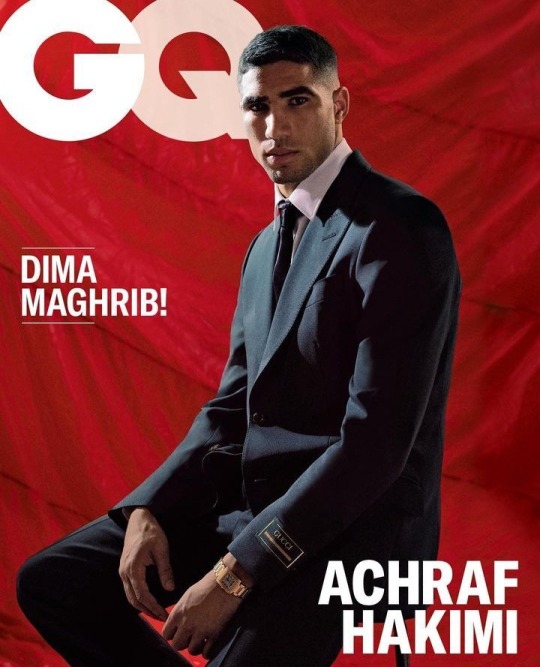
Achraf Hakimi Covers GQ Middle East, February 2023
#Achraf Hakimi Covers GQ Middle East February 2023#fashion#style#model#beauty#achraf hakimi#menswear#gq middle east
5 notes
·
View notes
Photo
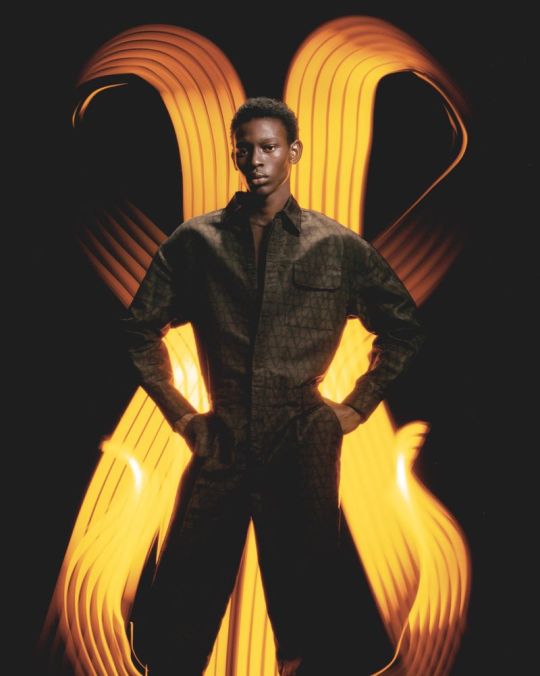
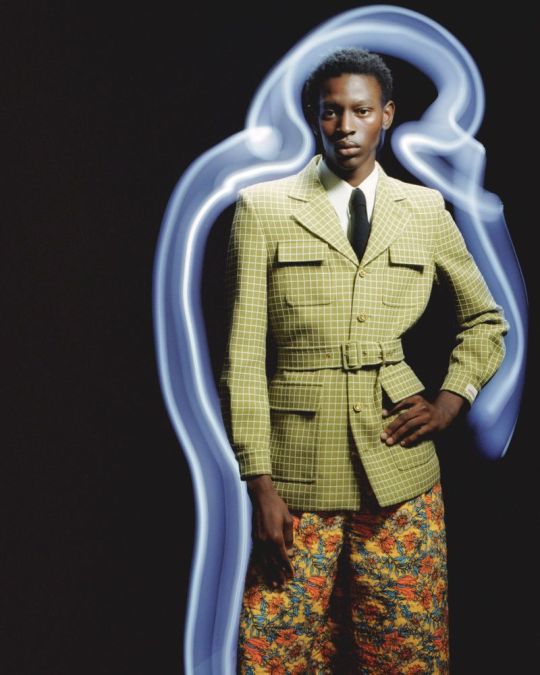
Toryorlando91:
Adamu Bulus photographed by Riccardo Dubitante - GQ Middle East April 2023
1 note
·
View note
Text
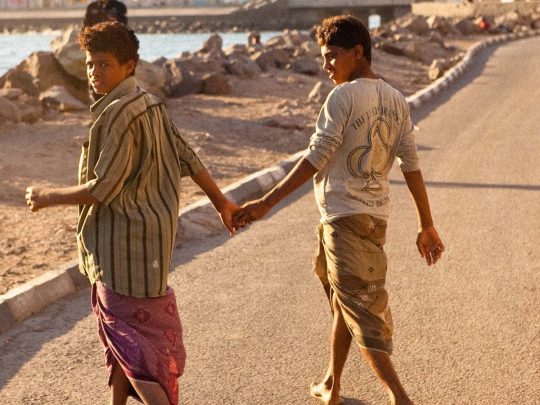
[ID in alt]
Yumna Al-Arashi on Yemen’s Language of Love [link]
Exploring the regional and Yemeni heritage of masculine softness, now at risk of being lost on a generation.
I grew up with images of Yemeni men hand-holding, nose-kissing and, specifically where my family are from in Northern Yemen, the respectful kissing of your parents and grandparents on the knees. In my mind’s eye, this always instilled a softness toward Yemeni men. But I feel that exposure to Western traditions, Hollywood, and prejudice means that these are facets of life slowly being lost within the region.
Yemen’s language of love is communicated with the body. The language of love is spoken with the lips, weaving the Arabic language into a poetry which shakes the soul to its core. In Yemen, the language of love is a head caress on your grandmother’s lap, a dizzying repetition of oudh-traced kisses on every angle of your face. The language of love is your right toes pointed out from under your (dere’), directing the vibration of your curves, low hips wrapped tightly in fabric to accentuate your rhythmic dance. The language of love is your aunts’ tongues beating the sides of their mouths, clapping their henna-covered hands, crying out in high-pitched unison. Yemen’s language of love is not subtle. [...]
19 notes
·
View notes
Photo

📸 Joe Keery for GQ Middle East (2019)
More Photos
8 notes
·
View notes
Text

Younes Bendjima for GQ Middle East, ph. Gray Sorrenti [Lyon, 2022]
95 notes
·
View notes
Photo

gq middle east
photographed by emil pabon (x)
1K notes
·
View notes
Text
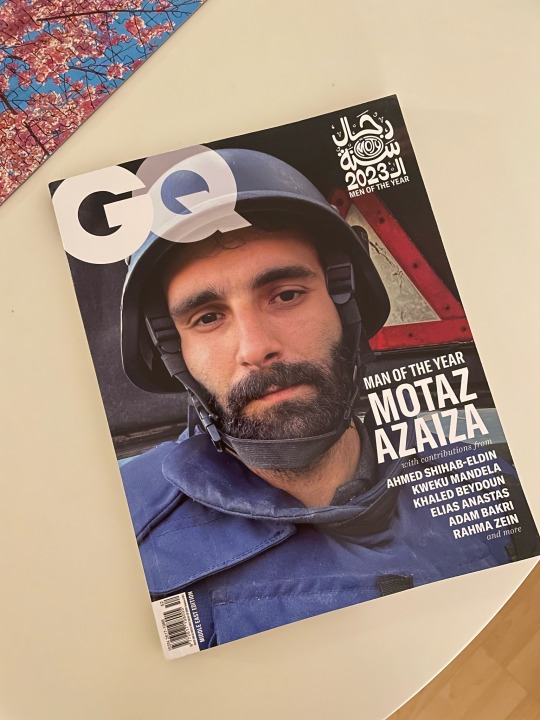
look what was in the mail today! ❤️🇵🇸
#finally!#it was worth the shipping costs#motaz#motaz azaiza#gq middle east#gq men of the year#gq magazine#palestine#free palestine#free gaza#gaza
11 notes
·
View notes
Text
Yassine Bounou for GQ Middle East Magazine February Issue
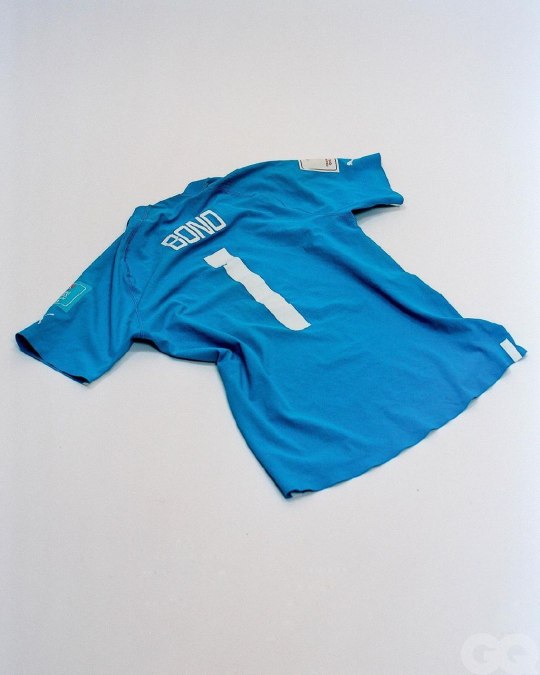
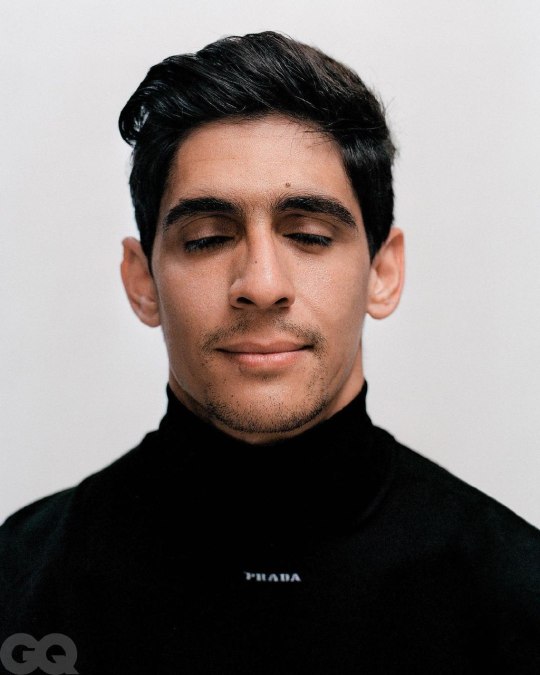

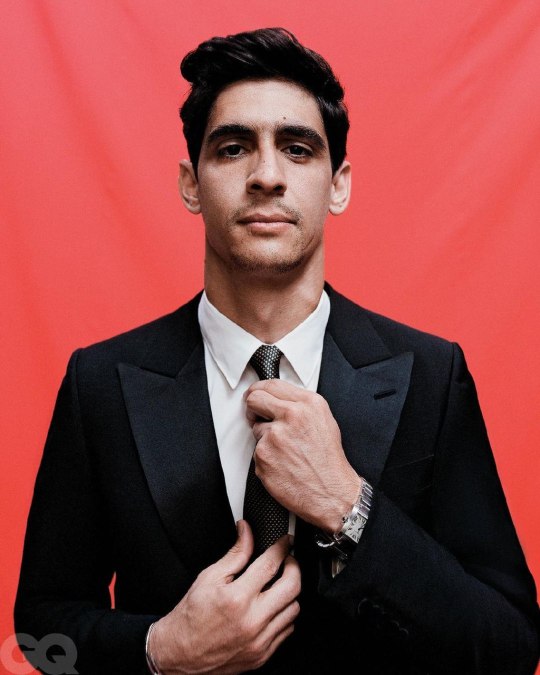

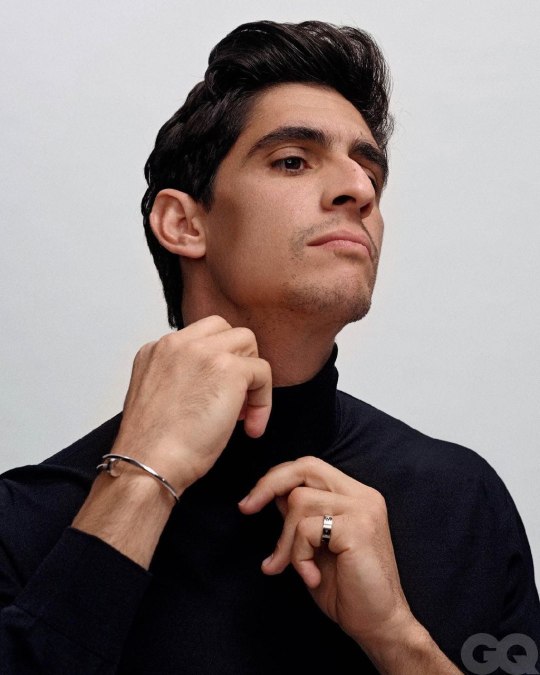

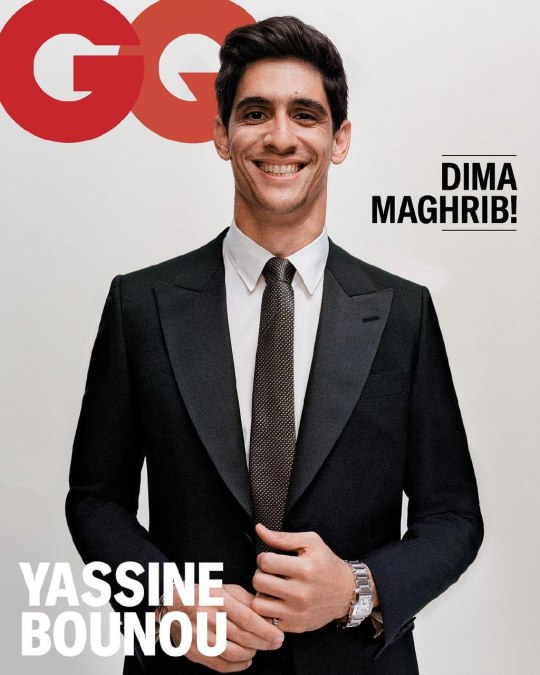
1 note
·
View note


